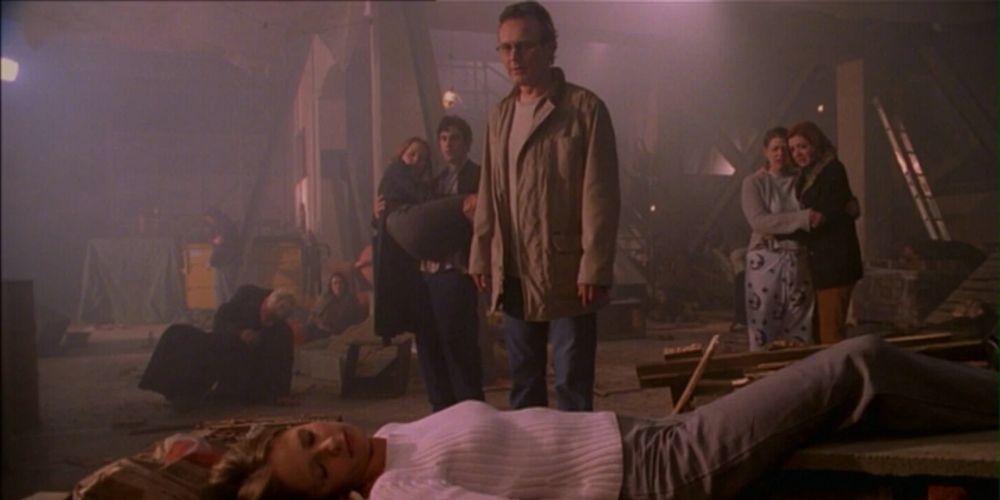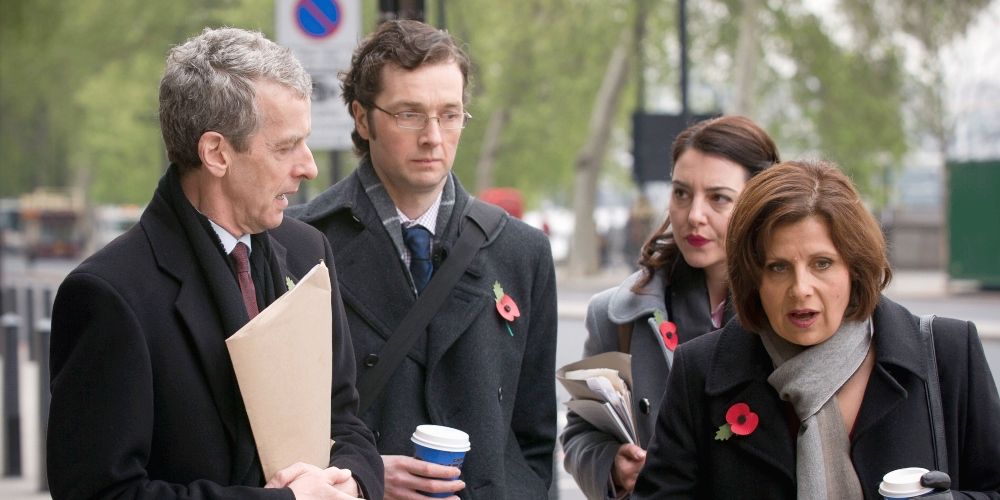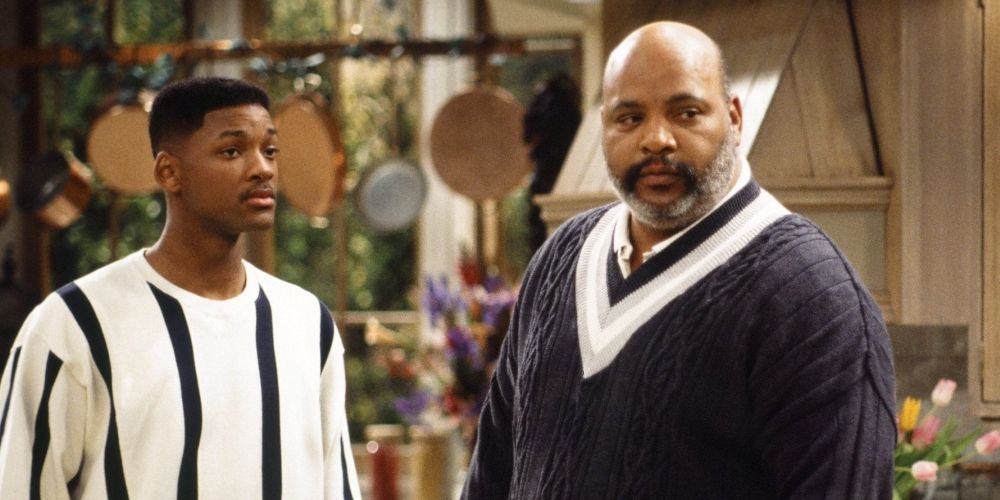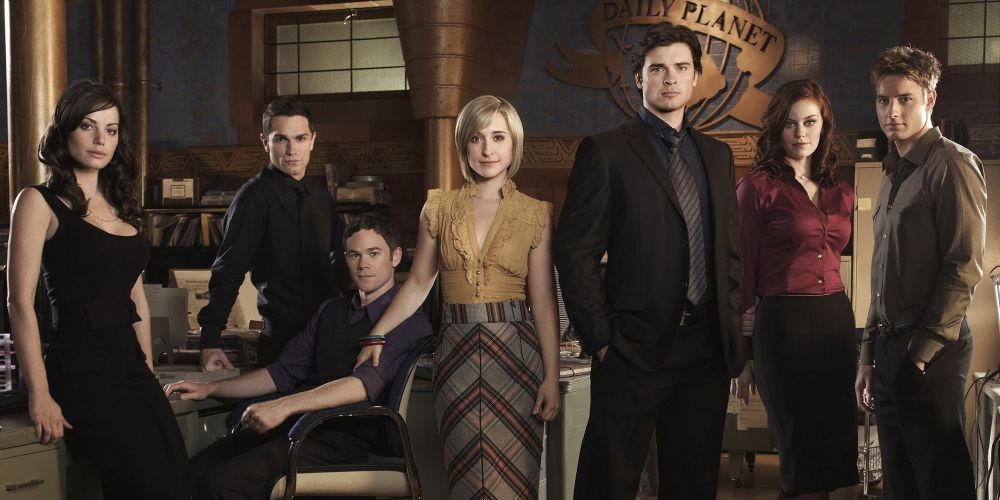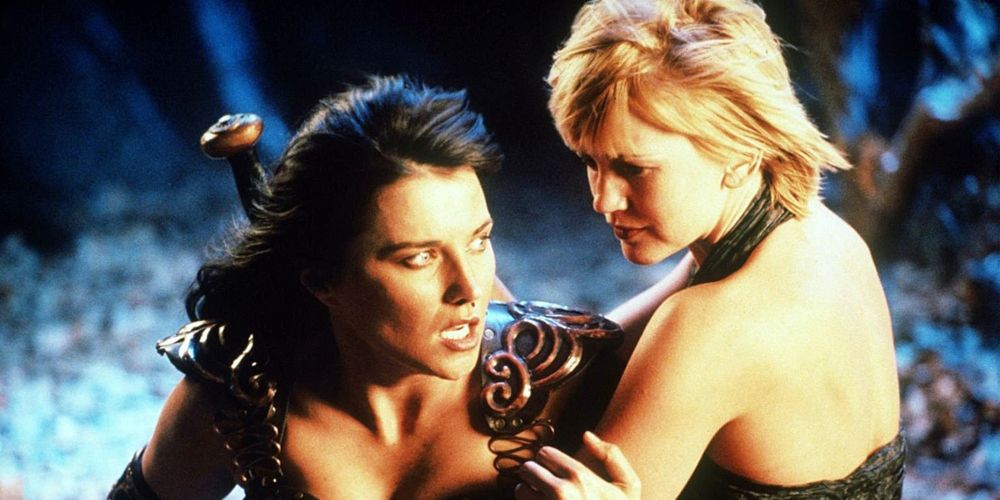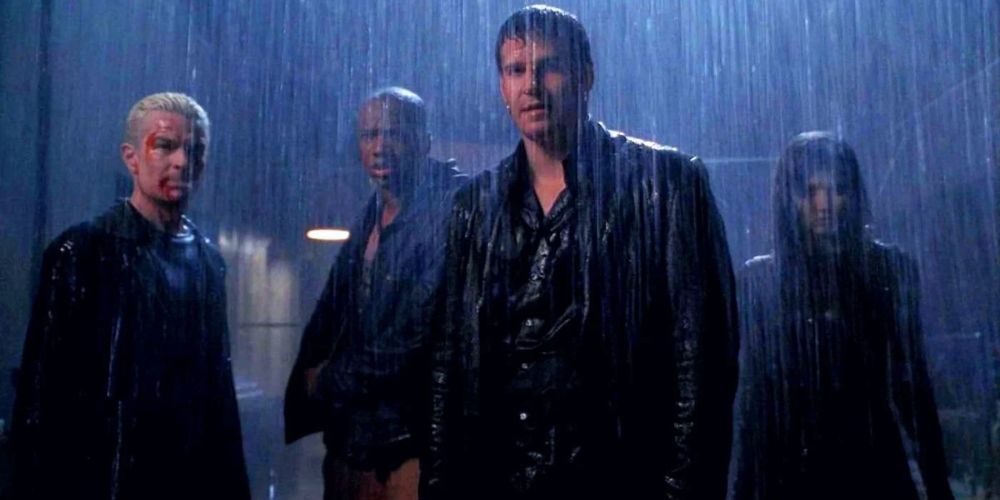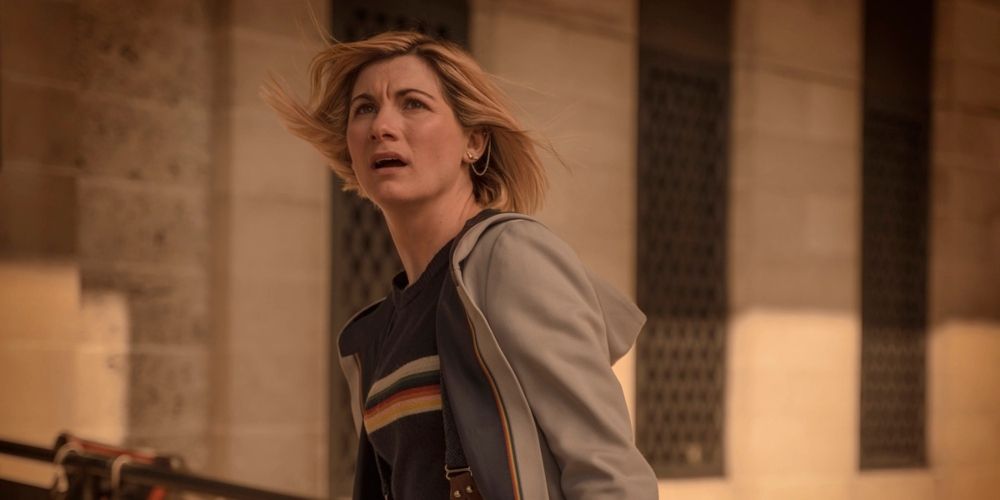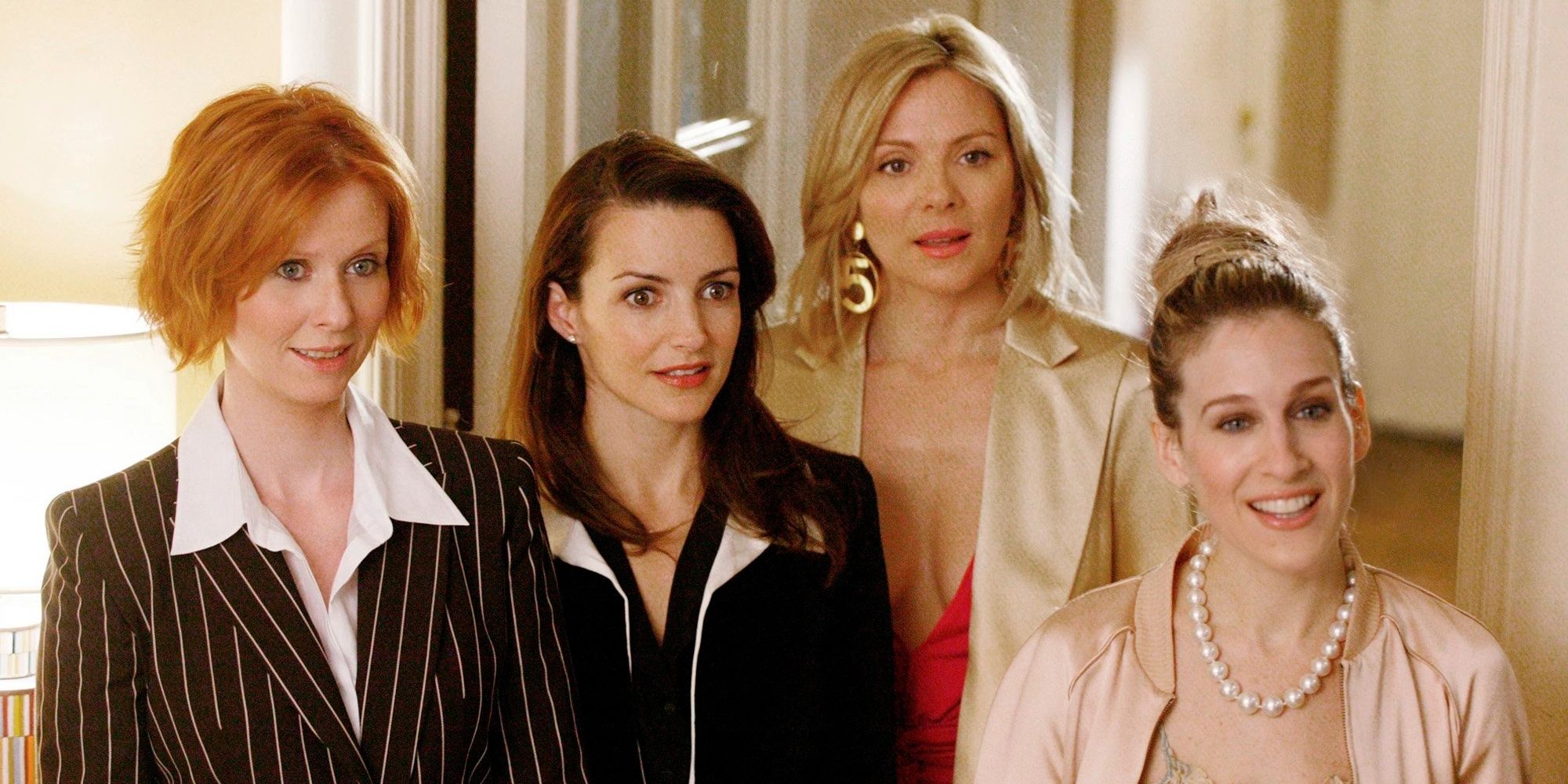The tone of a TV show is one thing that typically remains consistent. A comedy remains comedic, a gritty drama doesn't begin breaking out into song and dance, and horror series doesn't begin weaponizing bunnies. A consistent tone helps keep a show feeling like itself and avoids alienating members of the audience who enjoyed earlier seasons.
Nonetheless, sometimes a show's tone does change, and a common way is for it to become darker, with many shows starting off far more lighthearted than they end. Whether this is a deliberate choice, or the natural result of more dramatic storylines, darker villains, and deeper relationships, some shows become far more serious over time.
10 M*A*S*H All But Stopped Being A Sitcom
In the film and earliest seasons of the TV series, M*A*S*H was an outright comedy, albeit one with the unconventional setting of the Korean War. It always had a pacifism theme, but its situations began very lightheartedly and comedic.
This changed heavily over time, with the departure of several comedic characters and several changes in writers. In particular, the show went from its lighthearted first season to being the first sitcom in history to kill off a major character. By its end, the show practically resembled a drama, despite the lingering presence of some comedy.
9 Buffy The Vampire Slayer Took On More Mature Elements
Part of the signature style of Joss Whedon TV shows is blending comedy and drama together, creating series that are widely regarded as hilarious but retain the potential for great pathos. Buffy the Vampire Slayer was one of the best-known examples of this blend of tones.
Nonetheless, the balance shifted over the show's seven seasons. Although dark episodes and storylines happened throughout, the early episodes had happier endings and lighter plotlines, while by the end of the show, stories such as Buffy's depression after being resurrected, Willow's magic addiction, and Joyce Summers' death became commonplace.
8 The Thick Of It Mirrors Real-Life Politics
The Thick of It was a British political sitcom that attempted to echo and satirize the real-life workings and dynamics of the British government as well as possible. As such, it reflected the turmoil that occurred towards the end of the 2000s and into the early 2010s.
Although the show was always a black comedy, its early tension centered more around the obnoxious personalities of its characters and their desires to keep their jobs. In its final season, the government had collapsed, the replacement coalition despised one another, and several characters had their careers destroyed or faced prison time by the show's finale.
7 The Fresh Prince Of Bel-Air Began Tackling Serious Problems
The Fresh Prince of Bel-Air never became anything other than a sitcom, but as it gained in popularity, it pushed the boundaries of what a sitcom could cover. Initially, it was a fish-out-of-water comedy with the street-smart Will living with his upper-class uncle and aunt. The show's early storylines mostly focused on the disconnect between the characters.
As time wore on, the show tried its hand at more ambitious themes. Soon, the show began to tackle storylines about alcoholism and drug use, gun violence, and parental abandonment. Although the more serious and bleaker episodes never became the norm, they certainly became more frequent over time and showed that a sitcom could handle very real topics.
6 Smallville Took On Aspects Of Its Parent Comic
Comic books aren't a medium one often expects to be more serious than TV. Nonetheless, given that the tension of a Superman title is rarely about whether he can defeat his opponent, his comic books often delve into more mature themes like responsibility, restraint, the nature of justice, and the importance of morality.
As such, Smallville became a more serious show after it started to better resemble Superman comic books. For its first couple of seasons, it had a monster-of-the-week format interspersed with high school and relationship drama. Later seasons would delve more into the Superman mythos and even the Justice League, giving the show more gravitas.
5 Xena: Warrior Princess Lost Some Of Its Camp Elements
Xena: Warrior Princess never became an entirely serious show, still liable to have jokes and silly moments thrown into its storylines, but it changed a great deal from its early seasons, which were nearly entirely campy and lighthearted.
Over time, the show grew darker, with a notable jump coming in the third season. Rather than just being exciting and funny, the show instead began a more dramatic exploration of its characters' emotions, and their development. Later seasons of the show are far darker than those that came before.
4 How I Met Your Mother Had Darker Storylines
Even by the standards of sitcoms, How I Met Your Mother never took itself overly seriously, happily playing around with unreliable narrators, wacky antics, and over-the-top storylines. Despite this, it managed to cover storylines with an impressive level of darkness to them.
Its first seasons were largely occupied with petty relationship drama and exaggerated antics, but there were some serious storylines, including Lily leaving Marshall. By the end of the show, serious storylines were something of the norm, with the show exploring areas like Marshall's father's death, Ted's depression, and ultimately showing the death of the titular Mother.
3 Angel Became Darker Than Buffy Ever Did
Angel, the spin-off to Buffy the Vampire Slayer, was always darker than its parent show, aiming for a gritty noir theme when Buffy was making the move to a college show. Nonetheless, its first season was still on the lighter end of the balance between comedy and seriousness. Angel takes on a more goofy characterization, and his unusual team of sidekicks provides plenty of levity, despite dark moments such as Doyle's death.
The show often alternated between darker storylines and more lighthearted one — and the show was never devoid of comedy — but its last two seasons were notably more serious than its earlier ones. By the end of Season 5, Team Angel has lost several beloved members and is planning a suicide strike to simply set back the plans of Wolfram and Hart rather than win the day.
2 Doctor Who Varies Its Tone Often
Given that it is officially a family program, Doctor Who is often lighthearted, and at the beginning of its revival, it remained like that for most of its run. Season finales and occasional other episodes sometimes got serious, but often the threats were goofy, and the overall tone remained light and enjoyable.
As the show went on, the tone varied between seasons and especially between Doctors, with some tending more towards comedy and others more towards angst. However, there was no denying a more serious turn with the latest season, entitled 'Flux.' In that season, much of the universe is destroyed, and the Doctor has no way to undo it.
1 Sex And The City Focused Less On Short-Term Dating
When it first started, Sex and the City focused mainly on those two things: women exploring sex and short-term relationships in New York City. The show often has a 'guy of the week' format where one of the women gets a new boyfriend, and comedic problems erupt from that.
This format proved plenty popular, but the show began to experiment as it went on. By Season 3, more long-term relationships were driving the show's action, and it went even darker, exploring topics such as infertility and cancer. Throughout, it remained popular, with the shift in tone doing it no harm.



